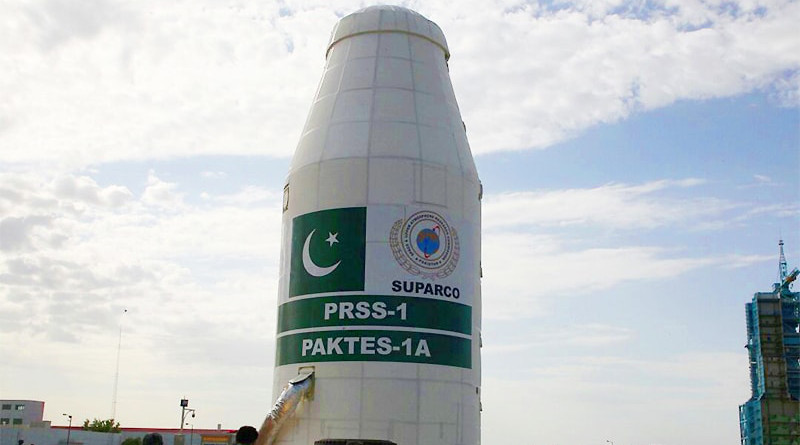Space Weaponization And South Asia’s Security Dilemma – OpEd
In an era where the skies are no longer the limit, the concept of space weaponization has emerged as a critical concern, particularly in regions marked by geopolitical tensions such as South Asia. From the vantage point of Pakistan, the implications of militarizing space are profound, presenting a complex security dilemma that demands careful consideration and strategic foresight.
Space, once regarded as the ultimate frontier for peaceful exploration and scientific advancement, is now increasingly viewed through the lens of military competition. As nations develop and deploy satellites for communication, reconnaissance, and navigation, the vulnerability of these assets to potential attacks has become a pressing issue. The prospect of space weaponization, including anti-satellite (ASAT) systems and other offensive capabilities, introduces a new dimension to regional security dynamics, one that Pakistan cannot afford to ignore.
From Pakistan’s perspective, the militarization of space poses multifaceted challenges. Firstly, it directly threatens the integrity of critical satellite infrastructure essential for communication, surveillance, and disaster management. As a country with growing reliance on space-based technologies for both civilian and military purposes, any disruption to satellite networks could have far-reaching consequences, compromising national security and hampering socio-economic development.
Moreover, the pursuit of space weapons by neighboring states introduces a new layer of uncertainty and instability to an already volatile region. The South Asian security landscape is characterized by historical animosities, unresolved conflicts, and nuclear capabilities, making the prospect of a celestial battlefield all the more concerning. The deployment of ASAT weapons, for instance, not only risks triggering a dangerous arms race but also raises the specter of unintended escalation and miscalculation, with potentially catastrophic consequences.
In navigating the security dilemma posed by space weaponization, Pakistan faces a delicate balancing act. On one hand, there is a need to safeguard national interests and ensure the protection of vital space assets. On the other hand, there is a recognition of the imperative to prevent the escalation of tensions and preserve regional stability. Striking this balance requires a comprehensive approach that combines diplomatic engagement, technological innovation, and international cooperation.
Diplomatically, Pakistan must actively engage with regional and global stakeholders to advocate for the peaceful use of outer space and promote confidence-building measures aimed at reducing the risk of conflict. Initiatives such as transparency and information-sharing mechanisms can help build trust and mitigate the potential for misunderstandings or misinterpretations of intentions.
Technologically, Pakistan must continue to invest in its space capabilities, focusing not only on enhancing satellite resilience and redundancy but also on developing defensive measures to counter potential threats. This may involve the deployment of anti-jamming technologies, encryption protocols, and other safeguards to protect against hostile actions in space.
Furthermore, Pakistan should actively support international efforts aimed at preventing the weaponization of space. This includes advocating for the establishment of clear rules and norms governing space activities, as well as supporting initiatives to strengthen existing arms control mechanisms. By promoting a rules-based order in space, Pakistan can help mitigate the risks associated with unchecked militarization and contribute to global peace and security.
In conclusion, the emergence of the celestial battlefield poses a significant security dilemma for Pakistan and the wider South Asian region. As space becomes increasingly militarized, the need for proactive and collaborative approaches to space governance becomes more urgent. By engaging diplomatically, investing in defensive technologies, and supporting international efforts to prevent the weaponization of space, Pakistan can navigate this security dilemma and help ensure that outer space remains a realm of peace and cooperation for generations to come.

